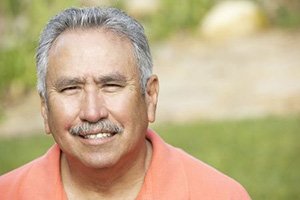
Q. Who owns my property with a reverse mortgage loan?
A. You do. You can hold title to the property in the manner you choose, including a living trust. You can bequeath the property to whomever you like. Under normal circumstances, the lender does not take title to the property (unless you are in default for failing to maintain the property or pay tax and insurance) and they never share in any equity. One of the biggest misconceptions out there is that the “bank owns my home.” It simply is not true.
Q. How do I receive income from a reverse mortgage?
A. There are three ways: A lump-sum, monthly payments or a credit line which grows over time and can be accessed at your discretion.
Q. What happens to my home when I pass away?
A. Upon the passing of the last surviving homeowner the reverse mortgage becomes due and payable. If your heirs wish to keep the home they can pay off the reverse mortgage balance, either by refinancing or by other means. If they do not want the home they can sell it and pay off the reverse mortgage balance. Any equity remaining is theirs to keep. If the home has negative equity at the time of sale, your heirs can sell the property for 95% of the appraised value and incur no further liability. Generally, the lender will allow six to twelve months after death for the sale to occur.
Q. Am I a good fit for a reverse mortgage?
A. Generally, there are three categories of senior homeowners who might be considered a good fit:
- Those who have an immediate need for a lump-sum of cash or an income stream. Also, those homeowners who still have a mortgage payment after they have retired and their income has dropped. Paying off a traditional mortgage and/or other debt can be very beneficial. Homeowners requiring in-home care can also benefit greatly from a reverse mortgage
- Those who wish to enhance lifestyle. Whatever items might be on your bucket list, converting your hard-earned equity to cash is a great way to enjoy life to the fullest in the golden years. This is a particularly attractive option for seniors who do not have heirs, or those who wish to spend their assets whilst alive rather than leaving it to someone else.
- The financially prudent. Many financial planners are now recommending reverse mortgages as part of a late-life financial strategy, even for those clients who have no immediate need for cash. Many seniors have a disproportionate amount of their assets in real estate. Drawing cash flow from the home can help delay social security payments, thus enabling you to receive higher benefits down the road or it can make other retirement assets last much longer. Homeowners with a reverse mortgage equity line are far less likely to run out of funds than others.
Q. Are reverse mortgage interest rates fixed or adjustable?

A. They can be either. The fixed rate HECM will allow you to obtain a lump-sum of cash, which can be used for paying off an existing mortgage or for almost any other reason. The rate on the loan will never change. However, you cannot get monthly income or establish an equity line with a fixed rate loan. The adjustable program has much more flexibility. You can receive a lump-sum of cash, receive monthly payments or set up a line of credit, which, if you so choose, allows you to pay down the balance periodically, thereby freeing up more equity for future use.
Adjustable rate programs start out at a lower initial rate than the fixed program, and while those rates are almost certain to change over time, there are limits or rate caps built in to protect seniors from excessively high interest rates, even under poor market conditions.
Q. What are my obligations under a reverse mortgage?
A. You must continue to live in the home as the HECM is not allowed for 2nd homes or rental properties. If you vacate the property for at least twelve months the loan must be paid back in full. You must continue to pay property tax and homeowners insurance. You must maintain the home in safe condition.
Q. I heard that reverse mortgages are non-recourse, what does that mean?
A. This is one of the greatest benefits to the program. Non-recourse means that you or your heirs will never owe more than the property is worth. At the time the loan becomes due and payable, if the home value is less than the balance owed, you or your heirs are only liable for 95% of the market value. If the homeowners live a long time or if property values decline, it is comforting to know that you or your heirs are not liable for any negative amount. The FHA insurance will take care of the deficit.
Q. Can I outlive my reverse mortgage?

A. As long as you keep up with obligations, such as paying tax, insurance and performing basic maintenance, you may live in your home as long as you wish without ever having to make a principal and interest mortgage payment. If you choose the adjustable rate option you may also continue to receive monthly income and any unused portion of your equity line will continue to grow.
Q. Who should not get a reverse mortgage?
A. There are some instances where a reverse mortgage might not be a good option. For example, if the property does not meet your long-term physical needs or if you plan to sell the home in the short-term, this may not be the best choice. Although it is true that you can sell the home at any time without penalty, a reverse mortgage should be considered as a long-term option because it is primarily designed to help homeowners to age-in-place.
Q. How can I get more information?
A. Call Reverse Home Finance at (619) 682-4900. Our website can answer many questions but we realize the information is general and you may have more specific questions. Once we have had the chance to speak or meet with you we can prepare a detailed proposal outlining the options available to you. That way you will have a lot of great information in writing so you can take all the time you need and come up with your best game plan.
